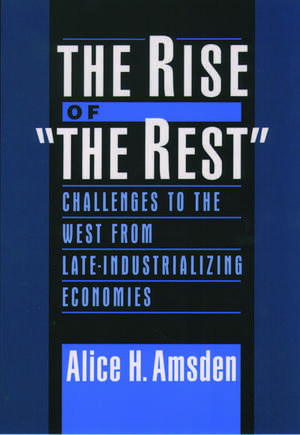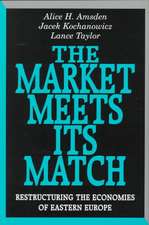The Rise of "The Rest": Challenges to the West from Late-Industrializing Economies
Autor Alice H. Amsdenen Limba Engleză Paperback – 15 ian 2004
Preț: 340.00 lei
Nou
Puncte Express: 510
Preț estimativ în valută:
65.06€ • 68.07$ • 54.04£
65.06€ • 68.07$ • 54.04£
Carte tipărită la comandă
Livrare economică 22-28 martie
Preluare comenzi: 021 569.72.76
Specificații
ISBN-13: 9780195170597
ISBN-10: 0195170598
Pagini: 416
Ilustrații: numerous tables & figures
Dimensiuni: 154 x 234 x 24 mm
Greutate: 0.57 kg
Editura: Oxford University Press
Colecția OUP USA
Locul publicării:New York, United States
ISBN-10: 0195170598
Pagini: 416
Ilustrații: numerous tables & figures
Dimensiuni: 154 x 234 x 24 mm
Greutate: 0.57 kg
Editura: Oxford University Press
Colecția OUP USA
Locul publicării:New York, United States
Recenzii
Amsden's arguments in support of govenrment intervention in nurturing manufacturing industry, both in Asia and Latin America , are succint and convincing. Advocates of the free market may disagree but they would be hard pressed to counter the mounting evidence and compelling arguments that Amsden has presented. At the very least, Amsden has shown that government intervention and the free market can co-exist as long as intervention is within the limits of free market economy.











